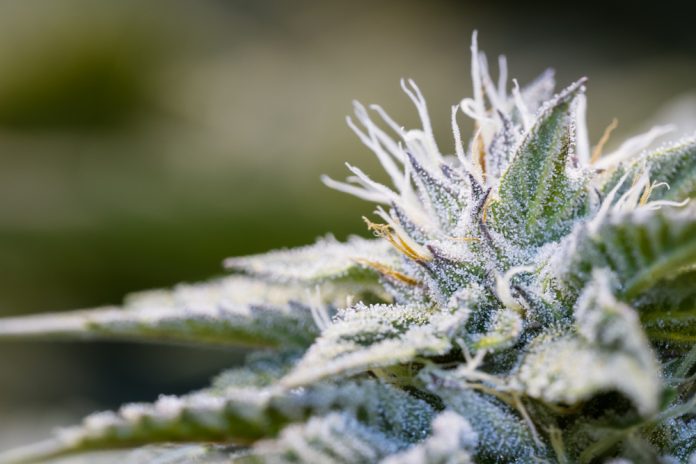U.S, April 13, 2020 (CANNABISTECH) COVID-19 is forcing the now essential cannabis industry to adapt business policies and procedures to meet demand.
As the COVID-19 pandemic puts a majority of Americans under lockdown, delivery services of all kinds have risen to meet a new and unexpected need. Delivery, it turns out, isn’t just for pizza. Wineries, fine dining restaurants, and now cannabis dispensaries are all frantically pivoting to stay open to support their clientele. It’s an extraordinary change, skipping many of the standard regulatory barriers.
Even in conservative-leaning states, governments are all quickly reassessing regulations around cannabis deliveries. Suddenly, deliveries make sense, especially when a majority of legal states have deemed it an essential service. The more reason for people to stay home, the more likely they will stay put.
Yet, it’s not just public safety opening up cannabis deliveries. In Canada, the Ontario provincial government has reversed an earlier decision that prohibited cannabis deliveries to stop the black market from creeping back in.
With more than 20 states (and counting) deeming medical cannabis an essential service, and more than 300 million Americans told to stay home, many patients are desperate for their medicine. Cannabis delivery services quickly and easily solve this dilemma. Already, the industry is seeing substantial changes to the way it operates, but is this change for good?
DELIVERIES RAPIDLY OPENING UP IN RESPONSE TO COVID-19
Colorado’s first delivery license, issued to The Dandelion based in Boulder, came at a very momentous moment. For registered cannabis patients located in Boulder and the neighboring town of Superior, it could not have been better timing. With stay-at-home orders popping up in the region, this new license means many patients can still safely access their medicine.
However, the state legalized deliveries as of January 2nd, 2020, and not necessarily in response to COVID-19. But, there are now several states that are upending cannabis legislation thanks to the pandemic. Across the nation, legal states (especially medical states) have begun opening up delivery services as a way to facilitate safe patient access.
According to reporting by the Marijuana Policy Project in Safe Access to Cannabis in Times of COVID-19, many states have specifically created legislation to allow for cannabis deliveries during this unprecedented global crisis. These states include Delaware and Louisiana. Other states, such as Pennsylvania and Minnesota, have temporarily changed restrictions for caregiver pickup.
Plus, curbside pickup is now an option during the pandemic in Arizona, Colorado, Connecticut, Delaware, Florida, Maine, Massachusetts, Michigan, Minnesota, New Hampshire, New Jersey, New Mexico, Oklahoma, Pennsylvania, Vermont, and Washington.
Over the coming weeks and months, it will be interesting to witness the rapid evolution of these new programs, especially in areas where cannabis has been deemed an essential service. Still, delivery or curbside pickup isn’t an option. Will these governments change their opinion to help reduce the risk to patients accessing these services?
ONTARIO ALLOWING DELIVERIES TO CURB BLACK MARKET SALES
A similar shift has begun in one Canadian province, although for dramatically different reasons. As per statistics released in August of 2019, more than 40 percent of Canadians still source their cannabis illegally. Canadians claim black market cannabis supplies better and more varied products, and often more conveniently than the legal system. Therefore, when Ontario decided to shutter licensed retail locations in response to COVID-19, Canadians knew exactly who to turn to instead: the underground dealers.
The Ontario provincial government has quickly realized the error of their decision. According to one Ontario retailer interviewed for the story in Canada’s National Observer, “Within hours of being forced to close our doors, illicit market delivery services started advertising directly on our storefront.” As of April 8th, the government reversed course. Regulators realized, if the government wouldn’t facilitate safe supply, dealers would quickly fill the void. Deliveries are now legal.
But unlike other places, it seems as though the decision to allow deliveries has less to do with consumer safety than fighting the threat of a black market takeover.
EXPECTATIONS POST-COVID-19
With so many governments issuing temporary rules around cannabis deliveries, many in the industry are wondering how long it will last. Post-pandemic, what will happen to the now booming business of door-to-door cannabis distribution?
There are many unknowns about what the post-COVID-19 world will look like. Across many industries, consumers are now enjoying the convenience of door-to-door delivery for items that were formerly pickup only. Will consumers still demand similar distribution networks after the crisis?
In many states, delivery options may have always been on the table, but regulators were aiming for a slow and careful rollout in a mature market. Now, COVID-19 has simply rushed regulators through these changes faster then they wanted. But likely, in these regions, cannabis delivery is here to stay. In others, the future is less certain.
At the very least, cannabis deliveries granted temporarily during COVID-19 offer a glimpse into what is possible. It’s a trial period to iron out the details and fix the kinks. Even temporary protocols about cannabis deliveries offer new markets a remarkable opportunity to test the waters and prove the feasibility of the model.







